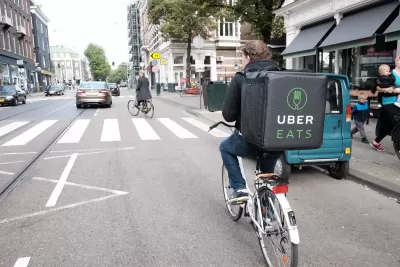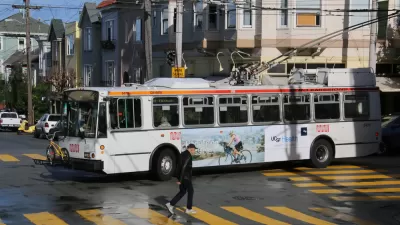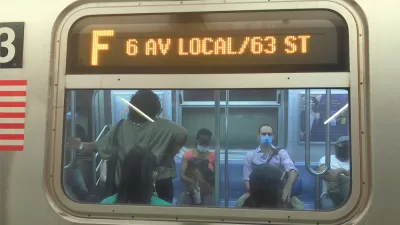Uber and Airbnb both announced massive layoffs this week, after Lyft did the same last week, as the coronavirus pandemic took a toll on very contemporary corners of the economy.

Two companies that rose to market and cultural dominance in the wake of the Great Recession are among the earliest to deal with the consequences of the coronavirus pandemic, as Airbnb and Uber this week announced massive layoffs.
Theodore Schleifer reports for Recode: "Brian Chesky, the company’s founder and CEO, told staff on Tuesday that the company’s revenue would be halved and that it would terminate about 1,900 of its 7,500 staff members — one of the largest layoffs in total that Silicon Valley has seen since the Covid-19 pandemic struck.
According to Schleifer, Airbnb was considered one of the most financial secure of the "unicorns" calling the Silicon Valley home. Chesky told company employees that the company is expecting to bring in half the revenue it expected to this year.
A day later, news broke that Uber would lay off even more of its employees. Brian Heater reports for TechCrunch: In an SEC filing dating back to last week, Uber disclosed plans to layoff 3,700 employees. The figure amounts to around 14% percent of the ride hailing giant’s total workforce.
Citing a letter to staff from Uber CEO Dara Khosrowshahi, Heater is able to report that the cuts will come from community operations and recruiting. "Uber will also be closing around 40 percent of its Greenlight locations — used for in-person driver assistance," according to the article.
Last week, Lyft announced layoffs for 1,000 employees, as reported by Faiz Siddiqui.
The layoffs amount to a massive blow to the technology sector sometimes known as the gig, or sharing, economy, which rose to prominence at least in part due to economic benefits offered to users during the austerity of the Great Recession. All three companies had a significant role in reshaping the landscape of the housing and transportation markets in ways that couldn't have been predicted before the Great Recession.
More on the potential for the coronavirus to reshape the landscape for housing and transportation, and thus the future of these companies, is included in a follow up article by Rachel Lerman.
FULL STORY: Uber to cut 3,700 jobs, adding to a growing number of tech layoffs

Planetizen Federal Action Tracker
A weekly monitor of how Trump’s orders and actions are impacting planners and planning in America.

Maui's Vacation Rental Debate Turns Ugly
Verbal attacks, misinformation campaigns and fistfights plague a high-stakes debate to convert thousands of vacation rentals into long-term housing.

San Francisco Suspends Traffic Calming Amidst Record Deaths
Citing “a challenging fiscal landscape,” the city will cease the program on the heels of 42 traffic deaths, including 24 pedestrians.

Amtrak Rolls Out New Orleans to Alabama “Mardi Gras” Train
The new service will operate morning and evening departures between Mobile and New Orleans.

The Subversive Car-Free Guide to Trump's Great American Road Trip
Car-free ways to access Chicagoland’s best tourist attractions.

San Antonio and Austin are Fusing Into one Massive Megaregion
The region spanning the two central Texas cities is growing fast, posing challenges for local infrastructure and water supplies.
Urban Design for Planners 1: Software Tools
This six-course series explores essential urban design concepts using open source software and equips planners with the tools they need to participate fully in the urban design process.
Planning for Universal Design
Learn the tools for implementing Universal Design in planning regulations.
Heyer Gruel & Associates PA
JM Goldson LLC
Custer County Colorado
City of Camden Redevelopment Agency
City of Astoria
Transportation Research & Education Center (TREC) at Portland State University
Jefferson Parish Government
Camden Redevelopment Agency
City of Claremont





























